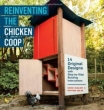Poultry breeds
Whether you want to produce your own eggs, raise birds for the table, breed poultry for showing or simply keep them as ornamental pets, there’s a breed for you. There are many breeds that are suitable for the different purposes, so decide what you want to achieve first.
Pure breeds
There are dozens of pure breeds available, including many fancy breeds developed for showing – it is unlikely that these will be very productive. However, some of these breeds are in danger of extinction and are recognised by the Rare Breeds Survival Trust, so you may want to keep some and help to preserve them.
Utility breeds
The traditional utility breeds – Rhode Island Reds, Light Sussex for example – are popular choices and the commercial hybrids (crossbreeds) are also good for beginners, as they tend to be hardy and prolific layers, as well as being cheaper to buy than pure-breeds. Examples of hybrids are Black Rocks, ISA Browns, Warrens and Bluebelles.
We bought our first hens in March 2002 - a Black Rock, which is a hybrid, a Light Sussex and a Rhode Island Red, which are pure breeds.
There was no particular logic to the choice of breeds but they looked pretty. The three “Originals” kept us supplied with eggs for most of the year, with a small surplus that we gave to friends.
Generally, pure breeds will lay fewer eggs per year but will lay for more years while the hybrids will lay more eggs per year but for fewer years.
Physically, hens are born with a finite number of eggs; when they're gone, they're gone.
In March 2003, we purchased a further three hens - a second Light Sussex, a second Rhode Island Red and a Brown Leghorn. The Brown Leghorn was an impulse buy because she was so pretty and laid lovely white eggs, which are a bit of a novelty these days.
Breeds with feathery feet don't scratch the ground as much as those without feathers so don't make as much mess. Some breeds have bantam (miniature) versions - bantams lay smaller eggs and tend to be broodier that large hens, so if you want to hatch eggs naturally, it might be worth keeping a couple.
- Previous « Buying poultry
- Next Pure Poultry Breeds »

About Rosemary Champion
Rosemary lives on a 12 acre smallholding in Angus, in the east of Scotland, where she keeps Ryeland Sheep, Shetland cattle and assorted poultry. She was destined to be a smallholder from an early age.
Further Reading
 Chicken & Eggs: River Cottage Handbook No.11 Mark Diacono |  Storey's Guide to Raising Chickens Gail Damerow |  A Beginners Guide to Caring for Ex-Batts Jo Barlow |  Reinventing the Chicken Coop Matthew Wolpe |  Chickens: The Essential Guide to Choosing and Keeping Happy, Healthy Hens Suzie Baldwin |
Smallholding shop
When you click links below and make a purchase, this may result in this site earning a commission from eBay.

Poultry Shield Ready-to-use
Poultry shield is a well… from £4.67 + p&p

Poultry Treadle Auto Feeder 10kg
A rat proof feeder… from £41.60 + p&p

Brinsea Mini Advance Incubator
Brinsea's Mini… from £127.95 + p&p

Eltex Grit Hopper large
Grit Hopper. Large grit hopper… from £32.88 + p&p
















